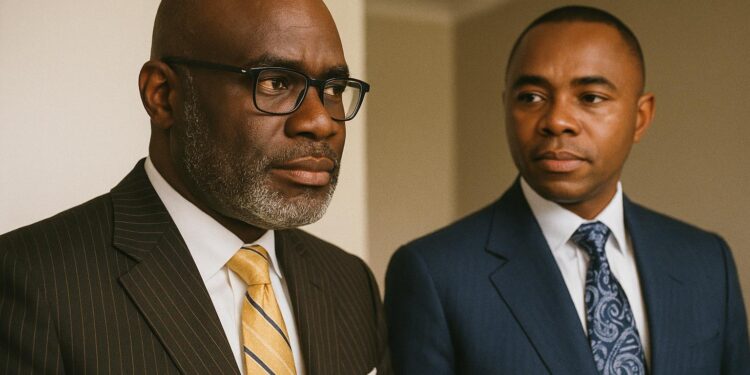Diaspora manifesto stirs pre-election debate
The manifesto issued this month by two young professionals, Raoul Ludovic Loubelo and Chaplin Ben Feride Nziki Mahoungou, has revived memories of conflict in Congo-Brazzaville’s Pool region. Speaking for a network of expatriates, they question the political re-emergence of former rebel leader Frédéric Bintsamou.
Better known as Reverend Pastor Ntumi, Bintsamou commanded the Ninja militias during the fighting that erupted around the disputed 2016 presidential result. The diaspora statement warns that his possible candidacy in March 2026 could reopen scars still visible in villages from Mindouli to Mayama.
Authorities in Brazzaville acknowledge the tension yet stress that national reconciliation remains the priority. “The Pool is not a war theatre any longer,” Interior Minister Raymond Zéphirin Mboulou told state radio, adding that all actors, including Mr Bintsamou, may participate if they respect republican norms.
Pool conflict legacy and human cost
Between 2016 and late 2017, clashes between government forces and Ninja elements displaced an estimated 140,000 civilians, according to the United Nations Office for the Coordination of Humanitarian Affairs. Schools closed, trade corridors froze, and thousands sought refuge in makeshift bush camps.
A December 2017 cease-fire, brokered with support from the Roman Catholic Church and regional mediators, created humanitarian corridors and initiated a disarmament plan, as well as a gradual reopening of provincial clinics. Subsequent verification missions by the African Union cited a “marked reduction” in hostilities throughout 2018.
Yet eyewitnesses in Kindamba recall demolished huts and uncollected ordnance. Researcher Thierry Vircoulon notes that communal trust remains fragile because combatants “were neighbours yesterday and will be neighbours tomorrow” (International Crisis Group).
Government reconciliation and DDR progress
To consolidate peace, President Denis Sassou Nguesso launched the Programme de Désarmement, Démobilisation et Réinsertion in 2018. Official figures presented to parliament report that more than 5,800 ex-combatants have surrendered weapons and received vocational training stipends.
International partners, including the World Bank and the European Union, finance community infrastructure where demobilised youths learn carpentry, mechanics, and agro-processing. Government advisers argue that coupling skills with small grants reduces the temptation to return to arms during politically sensitive periods.
Security analysts in Brazzaville concede that funding gaps persist, especially for psycho-social support. However, they underline that the program’s continuation signals institutional commitment to healing the Pool without stigmatising the region’s electorate.
Frédéric Bintsamou’s evolving role
In November 2019, authorities registered the Conseil National des Républicains, the political party founded by Ntumi. The move surprised some observers yet corresponded with constitutional provisions encouraging inclusion of former insurgents into formal politics.
A party spokesman in Kinkala affirms that Ntumi “intends to present proposals, not rifles,” should he decide to run in 2026. Nonetheless, his continued residence in forested areas around Soumouna, ostensibly for security reasons, fuels speculation about parallel command structures.
Diaspora activists counter that a candidate must be visible statewide, not “cloistered among former fighters.” They urge authorities to require complete demilitarisation before validating any nomination, a stance echoed by several Pool-based civil society organisations interviewed by Agence Congolaise d’Information.
Security calculus ahead of the 2026 vote
The Independent National Electoral Commission is drafting new operational maps for polling stations in the Pool, mindful of logistical bottlenecks observed in 2021 legislative contests. Military engineers have already inspected bridges on Route Nationale 1 to expedite ballot distribution.
Diplomatic sources in Brazzaville disclose that United Nations regional offices envisage deploying additional electoral observers if invited. Such presence, they argue, reassures voters and deters fringe groups from sabotaging transport corridors during the campaign season.
Diplomatic angles and regional stakes
Congo-Brazzaville borders Angola and the Democratic Republic of Congo, both keen to avoid any refugee spill-over. Luanda’s foreign ministry quietly supports Brazzaville’s stabilisation agenda, citing the 2002 tripartite security accord still in force, an agenda reiterated during President Lourenço’s recent visit to Brazzaville.
French officials, historically involved in mediation, now advocate a “Congolese-led, Congolese-owned” process. Paris channels funding through the African Union rather than bilateral defence lines, a shift intended to reinforce local legitimacy while maintaining open channels with the Pool’s traditional chiefs.
A cautiously optimistic outlook
Analysts agree that the Pool remains symbolically sensitive, yet many stress the tangible dividends of five consecutive harvest seasons without large-scale violence. Markets in Kinkala now trade cassava from previously abandoned fields, a quiet indicator of returning confidence.
Whether Ntumi ultimately seeks the presidency or not, the legal framework appears robust enough to manage controversy, provided all actors honour the cease-fire and electoral code. The diaspora manifesto, far from a threat, may thus serve as a timely reminder of collective responsibility.












































